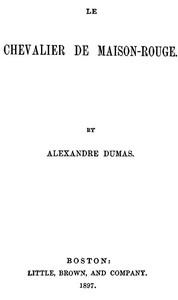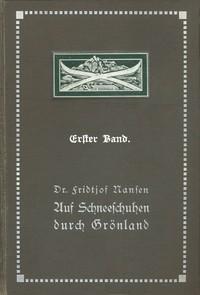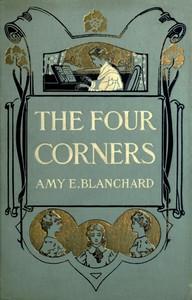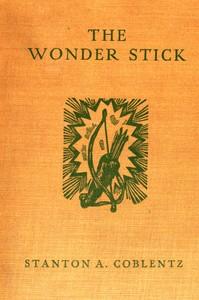Read this ebook for free! No credit card needed, absolutely nothing to pay.
Words: 131919 in 113 pages
This is an ebook sharing website. You can read the uploaded ebooks for free here. No credit cards needed, nothing to pay. If you want to own a digital copy of the ebook, or want to read offline with your favorite ebook-reader, then you can choose to buy and download the ebook.


: Le chevalier de Maison-Rouge by Dumas Alexandre Maquet Auguste - France History Revolution 1789-1799 Fiction; Marie Antoinette Queen consort of Louis XVI King of France 1755-1793 Fiction; Girondists Fiction
XL. The Tavern of Noah's Well 384
L. The Visit to the Domicile 461
CHEVALIER DE MAISON-ROUGE.
THE ENROLLED VOLUNTEERS.
It was on the evening of the 10th of March, 1793, ten o'clock was striking from Notre Dame, and each stroke sounding, emitted a sad and monotonous vibration. Night had fallen on Paris, not boisterous and stormy, but cold, damp, and foggy. Paris itself at that time was not the Paris of our day, glittering at night with thousands of reflected lights,--the Paris of busy promenades, of lively chat, with its riotous suburbs, the scene of audacious quarrels, and daring crime,-- but a fearful, timid, busy city, whose few and scattered inhabitants, even in crossing from one street to another, ran concealing themselves in the darkness of the alleys, and ensconcing themselves behind their portes-coch?res, like wild beasts tracked by the hunters to their lair.
As we have previously said, it was the evening of the 10th of March, 1793. A few remarks upon the critical situation of the country, which had produced the changed aspect of the capital, before we commence stating the events the recital of which form the subject of this history.
The state of affairs was truly frightful. France, more respected as a physical power, but less esteemed as a moral one, since the massacres of September and the execution of the 21st of January, was literally blockaded, like a simple town, by the whole of Europe. England was on our coasts, Spain upon the Pyrenees, Piedmont and Austria on the Alps, Holland and Prussia to the north of the Pays-Bas, and with one accord from the Upper Rhine to the Scheldt two hundred and fifty thousand combatants marched against the Republic. Our generals were repulsed in every direction. Miacrinski had been obliged to abandon Aix-la-Chapelle, and draw back upon Liege; Steingel and Neuilly were driven back upon Limbourg; while Miranda, who besieged Maestricht, fell back upon Tongres. Valence and Dampierre, reduced to beat a retreat, did so with a loss of half their number. More than ten thousand deserters had already abandoned the army, and cleverly scattered themselves in the interior. At last the Convention, having no hope except in Dumouriez, despatched courier after courier, commanding him to quit the borders of the Biesboos , and return to take the command of the army of the Meuse.
Sensitive at heart, like an animate body, France felt at Paris--that is to say, at its core--each and every blow levelled at it by invasion, revolt, or treason, even from quarters the most distant. Each victory was a riot of joy; every defeat an insurrection of terror. It is therefore easy to comprehend what tumult was produced by the news of these successive losses which we had just experienced.
On the preceding evening, the 9th of March, they had had at the Convention a sitting more stormy than usual; all the officers had received orders to join their regiments at the same time, and Danton, that audacious proposer of improbable things ,--Danton mounting the tribune, cried out, "Soldiers are wanting, say you? Offer Paris an opportunity of saving France. Demand from her thirty thousand men, send them to Dumouriez; and not only is France saved, but Belgium is secured, and Holland is conquered." This proposition had been received with shouts of enthusiasm, registers had been opened in all the sections, calling on them to assemble in the evening. Places of public amusement were closed to avoid all distraction, and the black flag was hoisted at the H?tel de Ville, in token of distress. Before midnight, five and thirty thousand names were inscribed on the registers; only this evening, as it had before occurred in September, in every section, while inscribing their names, the enrolled Volunteers had demanded that before their departure the traitors might be punished.
The traitors were in fact the "contre-revolutionists,"--the hidden conspirators who from within menaced the Revolution, thus menaced from without. But as may be easily understood, the word "traitor" extended to all those to whom the extreme parties who at this period tore France wished to apply it. The traitors were the weaker party; as the Girondins were the weakest, the Montagnards decided that the Girondins must be the traitors.
On the next day, which was the 10th of March, all the Montagnard deputies were present at the sitting. The Jacobins, armed, filled the tribunes, after having turned out the women; the mayor presented himself with the Council of the Commune, confirming the report of the Commissioners of the Convention respecting the devotedness of the citizens, but repeating the wish, unanimously expressed the preceding evening, for a Tribunal Extraordinary appointed to judge the traitors. The report of the Committee was instantly demanded with loud vociferations. The Committee met immediately, and in five minutes afterward Robert Lindet declared that a Tribunal would be formed, composed of nine judges , divided into two permanent sections, and prosecuting, by order of the Convention or directly, all those who were found guilty in any way of attempting to mislead the people.
The Montagnards, in reply to this apostrophe, demanded to put the matter to the vote in loud tones. "Yes," exclaimed F?raud, "let us vote to make known to the world the men who are willing to assassinate innocence under the mask of the law." They voted at length; and against all expectation the majority decided-- that they would have juries; that these juries should be of equal numbers in the departments; that they should be nominated by the Convention. At the moment when these three propositions were approved, loud cries were heard; but the Convention, accustomed to receive occasional visits from the populace, inquired their wishes, and were informed in reply that it was merely a deputation of enrolled Volunteers, who, having dined at the Halle-au-Bl?, demanded to be permitted to display their military tactics before the Convention.
Free books android app tbrJar TBR JAR Read Free books online gutenberg
More posts by @FreeBooks

: Auf Schneeschuhen durch Grönland. Erster Band by Nansen Fridtjof Bloch Andreas Illustrator Holmboe Thorolf Illustrator Nielsen Eivind Illustrator Werenskiold Erik Theodor Illustrator Mann Mathilde Translator - Greenland Description and travel; Arctic regi


: The four Corners in California by Blanchard Amy Ella Smith Wuanita Illustrator - California Description and travel Juvenile fiction






